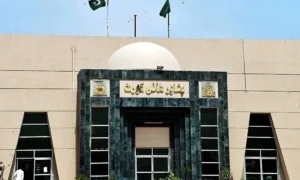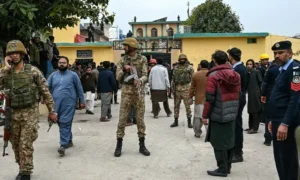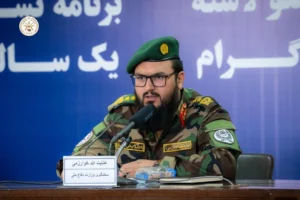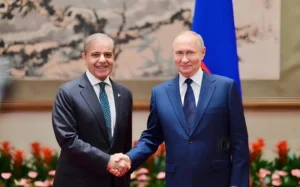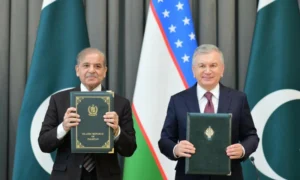PAk Asia Youth Forum conducted a reflective and pensive X space session on 30th May 2025 at the overriding topic of “Surkh Sawera: The Bloodied Footprints of Marxism in South Asia”. The space on this historically pivotal topic was Co-hosted by Muniba Abdul Khalid Bhatti and moderated by Laiba Arshad, the space having Mr. Abdul Munim, Usama Khan and Salman Javed as Panelists brought together a rich panel of voices to dissect the ideological roots, regional infusions, and lasting legacies of Marxism in Afghanistan and Pakistan.
Mr. Abdul Munim
Topic: Ideological Frameworks and Misconceptions Around Marxism in South Asia
Mr. Munim opened the conversation by tackling a pressing question on the authenticity of Marxism’s advocacy of violence, asserting that Marxism cannot be understood in isolation or as a vacuum-born ideology. Instead, it evolved in response to deep-rooted racism, colonial oppression, and the philosophical framework of Hegelian dialectics.
He highlighted how Karl Marx adopted and transformed Hegel’s ideas into materialistic determinism, which, in turn, diminished the role of morality—laying grounds for violent conflict as a justified solution.
The purges under Stalin were cited as evidence of how Marxist states viewed violence as a legitimate extension of state power, with Stalin himself describing the state as an “instrument of class oppression.
Tankie Debate in Pakistan
Mr. Munim addressed the evolution of Marxist affiliations in Pakistan:
He distinguished Stalinists (e.g., early CPP) from modern-day Leninists, who often argue that it was Stalinism—not Leninism—that failed.
According to Munim, this narrative omits the historical reality where Stalin sidelined Lenin, even though Lenin himself viewed the proletariat as the vanguard of revolution.
Why Leftist Ideologies Appeal to Youth
Mr. Munim also drew attention to the ideological vacuum filled by Marxist ideas in Pakistani academia. He argued that:
Youth are attracted to leftist ideologies because they reject the concept of divine predestination and religious intervention in daily life.
This drift from religion leads to radicalization and ideological extremism on campuses under the guise of progressivism.
Mr. Usama Khan
The Practical Footprint of Marxism in Afghanistan
Mr. Khan provided a critical historical analysis of the People’s Democratic Party of Afghanistan (PDPA) and its role in igniting prolonged instability in the region.
PDPA, founded in 1965, became a key ideological and political tool of Marxist expansionism, heavily influenced by the Soviet Union’s offshore balancing tactics.
Figures like Hafizullah Amin and Sardar Daud Khan were mentioned, with Daud forming pacts with the USSR, inviting military advisors, weapons, and ideologically indoctrinated professors.
PDPA’s Violent Trail
A significant point was the brutal purge of Sardar Daud Khan’s family by PDPA loyalists.
Academic institutions were not spared either; the Dean of Islamic Studies at Kabul University and several students were assassinated, sparking a wave of fear.
The displacement of over 100,000 people occurred well before the Soviet invasion of 1979, debunking the common misconception that migration started post-occupation.
Mr. Khan emphasized that the ideological radicalism introduced by PDPA laid the foundation for civil unrest, triggering a chain reaction that still affects the region today.
Mr. Salman Javed
Ethnic Faultlines, Identity Politics & Rebranded Marxist Currents
Mr. Javed initiated his segment by referencing the book “The World Was Going Our Way,” which chronicles the inner factional bloodshed between PDPA’s Khalq and Parcham groups. These power struggles, rooted in ethnic and ideological divisions, brought violent instability to Afghanistan.
Identity Politics in Pakistan
He drew parallels with contemporary movements like BLA, BYC, BSO, PTM, and NAP, stating that these groups exploit ethnic faultlines and rely on identity politics as their final rhetorical stronghold.
Despite their attempts, he argued, their rhetoric remains weak and detached from ground realities.
Marxism’s Modern Rebranding
Mr. Javed warned of “rebranded leftist and Marxist fronts” now occupying space in Pakistani intelligentsia, particularly in educational and cultural institutions:
These outlets use more palatable tags to mask their ideological roots and influence young minds through seemingly liberal or progressive causes.
He highlighted how these narratives feed into the broader “Great Game” of geopolitical manipulation in the region.
Mr. Munim, in conclusion, tied these themes together by pointing out ideological intersections between Marxism and Zionism, and the delusional aspirations of Baloch insurgents to sever territory from Pakistan—fueled in part by imported ideological fantasies rather than political realism.
Key Takeaway:
The space provided a critical lens on how Marxist ideologies—often sanitized or rebranded—continue to shape political unrest and academic discourse in Pakistan and Afghanistan. The discussion stressed the need for ideological clarity, historical awareness, and intellectual resilience to counter the subtle perpetuation of violent and divisive doctrines in the region.


